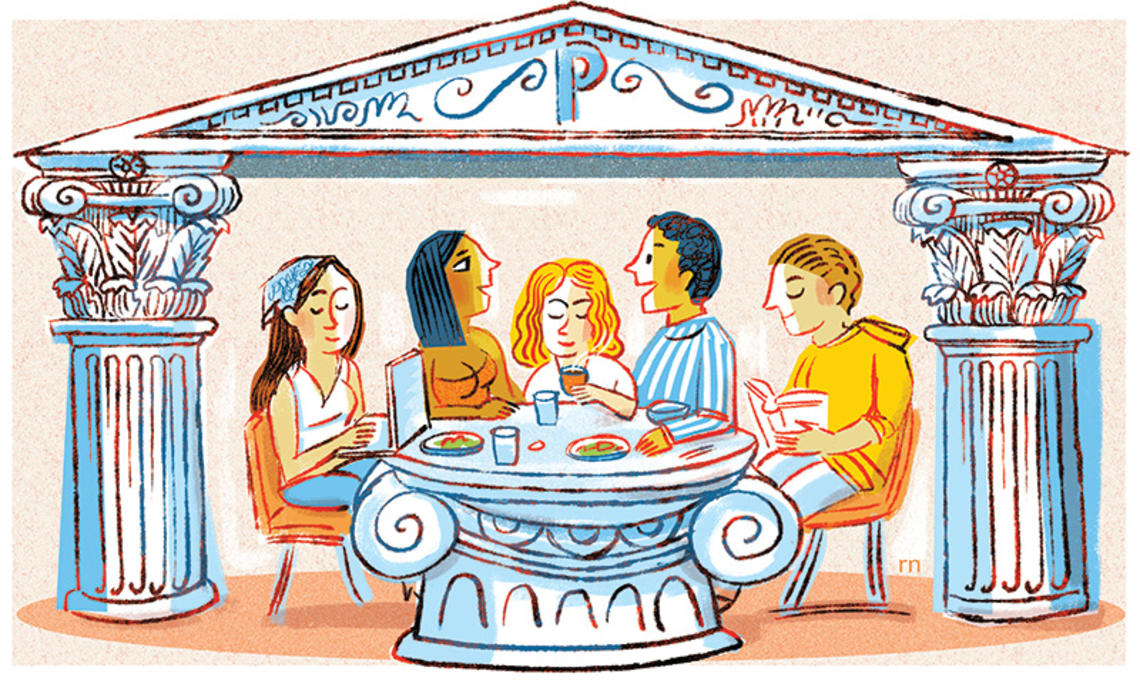
“Dude! What are you doing here?”
I whipped my head around, wondering who had called to me. There, standing in the streets of Athens, was a good friend of mine from freshman year.
I immediately rushed over to him, leaving my classmates behind to go and get coffee. We caught up in the pathway next to the Panathenaic Stadium, the site of the first modern Olympic Games. We excitedly explained what had brought us to Greece for the summer. He was working in Princeton’s International Internship Program, and I was taking an Intensive Introduction in Attic Prose.
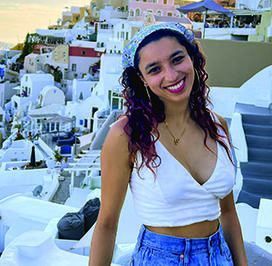
Over the course of the summer, I met more than 30 other Princeton students who had come to Athens for one program or another and spent the summer connecting and reconnecting in new ways, creating an informal community of support throughout the city.
Many of the students who came to Greece were genuinely surprised by the array of classmates they would encounter. One student in the Ancient Greek program, Nadia Makuc ’26, and her roommate planned to meet up with a couple of friends who were attending a workshop at Meteora, a UNESCO World Heritage Site in central Greece, and spending a day in Athens. At lunch, another mutual friend turned up, and by the time they’d ordered, two more joined the table — a new friend from the Ancient Greek program and a friend of his. “Our food had just arrived, and my roommate and I got a text that our other friend had just flown into Athens and came and joined us at the restaurant with her luggage,” Makuc said.
This lunch group was eating at what became a favorite for Princeton students in Athens, Pita Pan, a restaurant famous for its 3-euro gyros. The students represented a diverse range of interests. Some had gone abroad to learn modern Greek, some were doing internships in computer science, and some were in graduate workshops studying Byzantine history.
“It felt like, in that moment, that it was just meant to be. I knew I was supposed to be there and part of this group,” Makuc said.
Although students typically meet over meals on campus, many attributed the Greek lifestyle as a large factor in their ability to form bonds.
“The laid-back Greek culture made it so much easier to connect with my friends from Princeton and get to know them better,” said Sterling Hall ’25, who participated in the International Internship Program.
In Greece, it is common for lunches and dinners to stretch for hours or for people to take coffee breaks that last all afternoon. Princeton students found this culture a welcome reprieve from the daily stress of classes and extracurriculars on campus.
“It seemed as though many of us had found a new work-life balance that was great for a Princeton student in the summertime,” said Emily Hove ’26. “During the weekdays I worked for a nonprofit that was all about international diplomacy and business based out of Athens. On the weekends, I had the opportunity to visit the Greek islands with other students, where we immersed ourselves in Grecian life by enjoying the music, food, dancing, and sightseeing.”
Students often spent the weekends exploring Athens or flying to the nearby islands with one another, taking trips with new friends and old classmates alike.
“I met a bunch of Princeton people who I never would have crossed paths with at Princeton,” said Alex Kirk ’26, who participated in the Seeger Fellowship. “Two grad students and two undergraduate students and I went to Athens Pride together. It was wonderful to connect with other queer Princetonians and celebrate pride with them.”
Whether through group study sessions or weekend trips to Crete, students were able to experience Greece with one another, getting a taste of what the Princeton community can be outside the Orange Bubble.
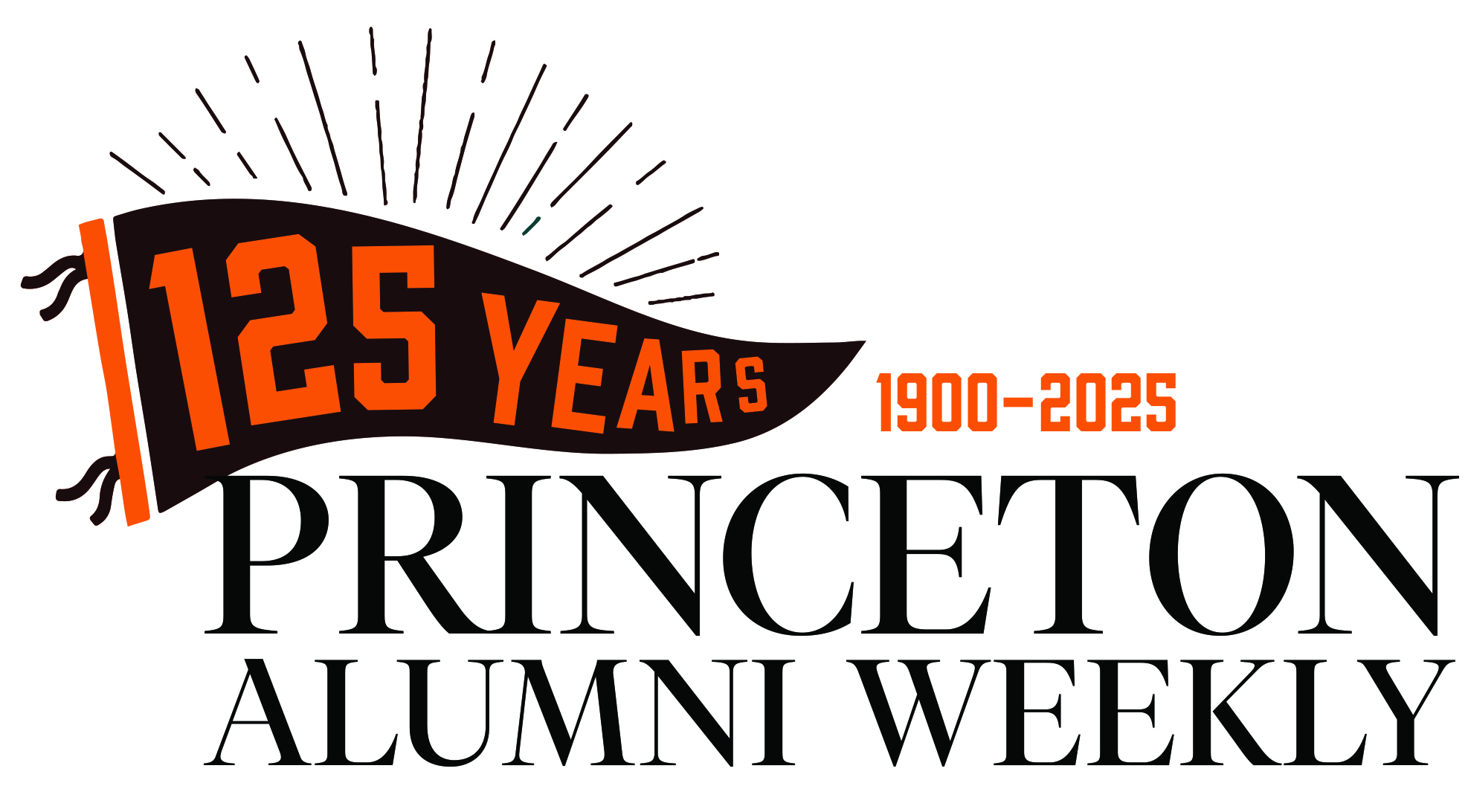







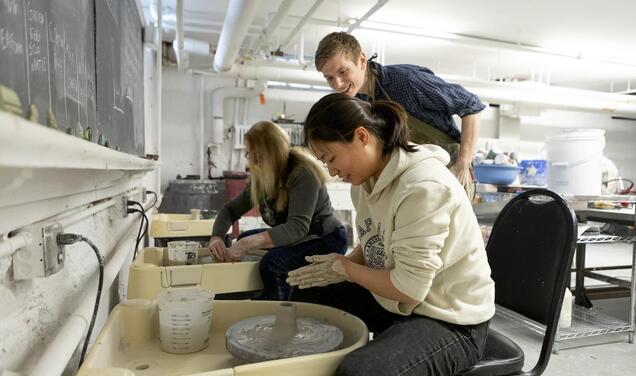
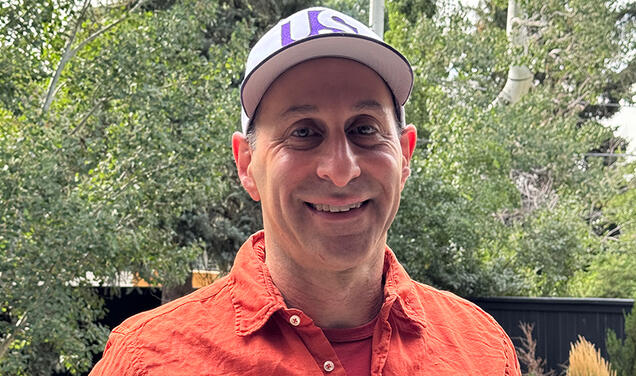

0 Responses